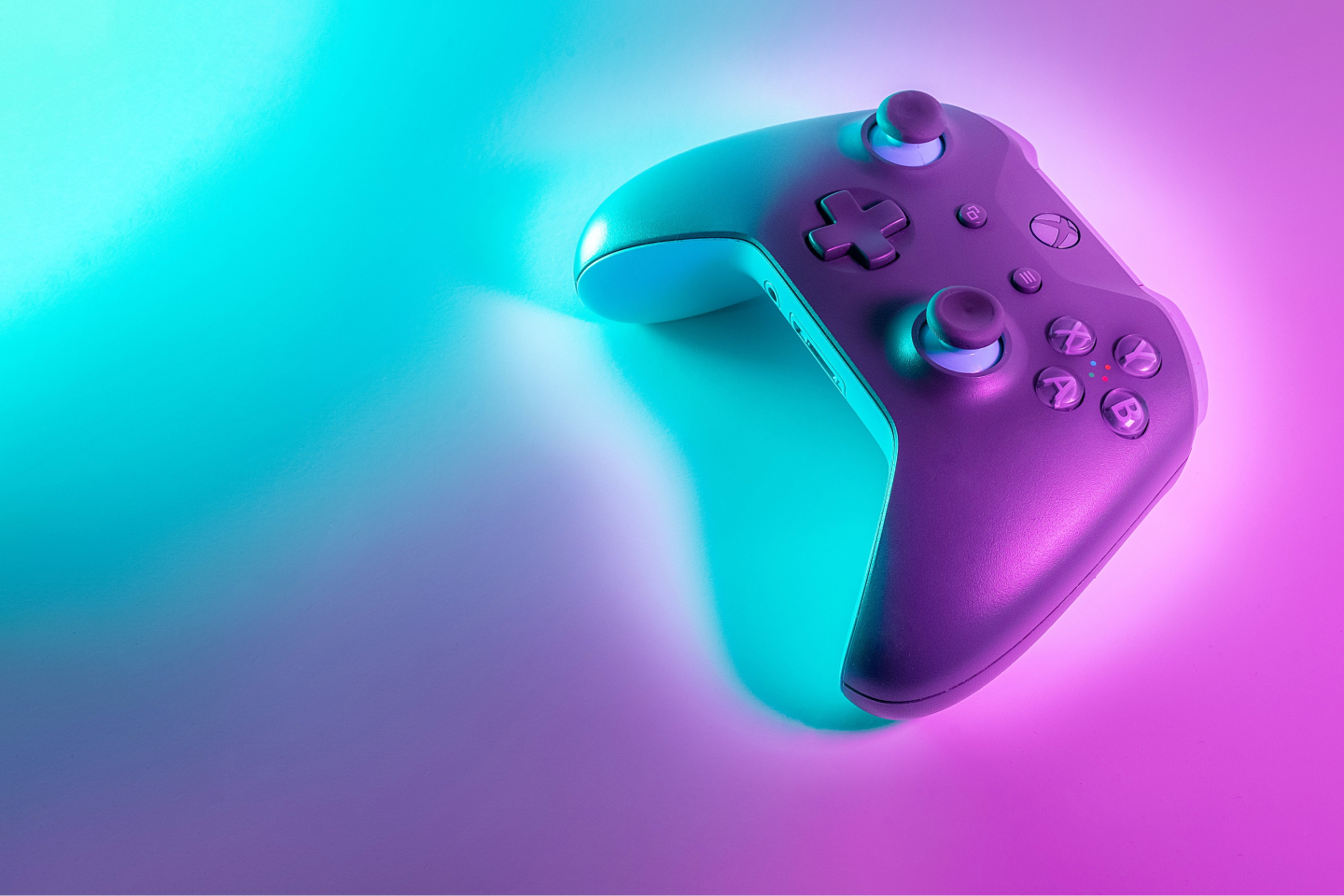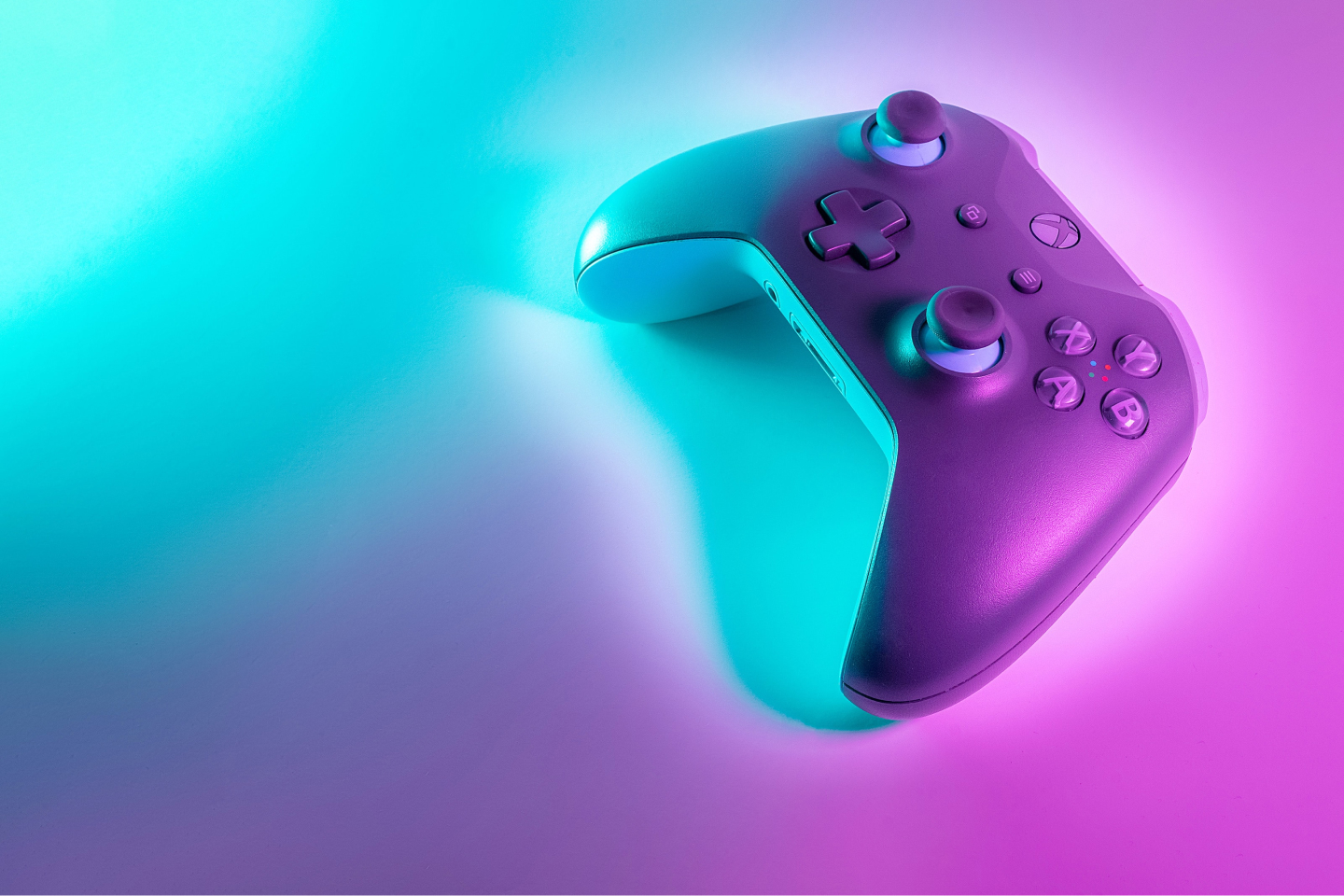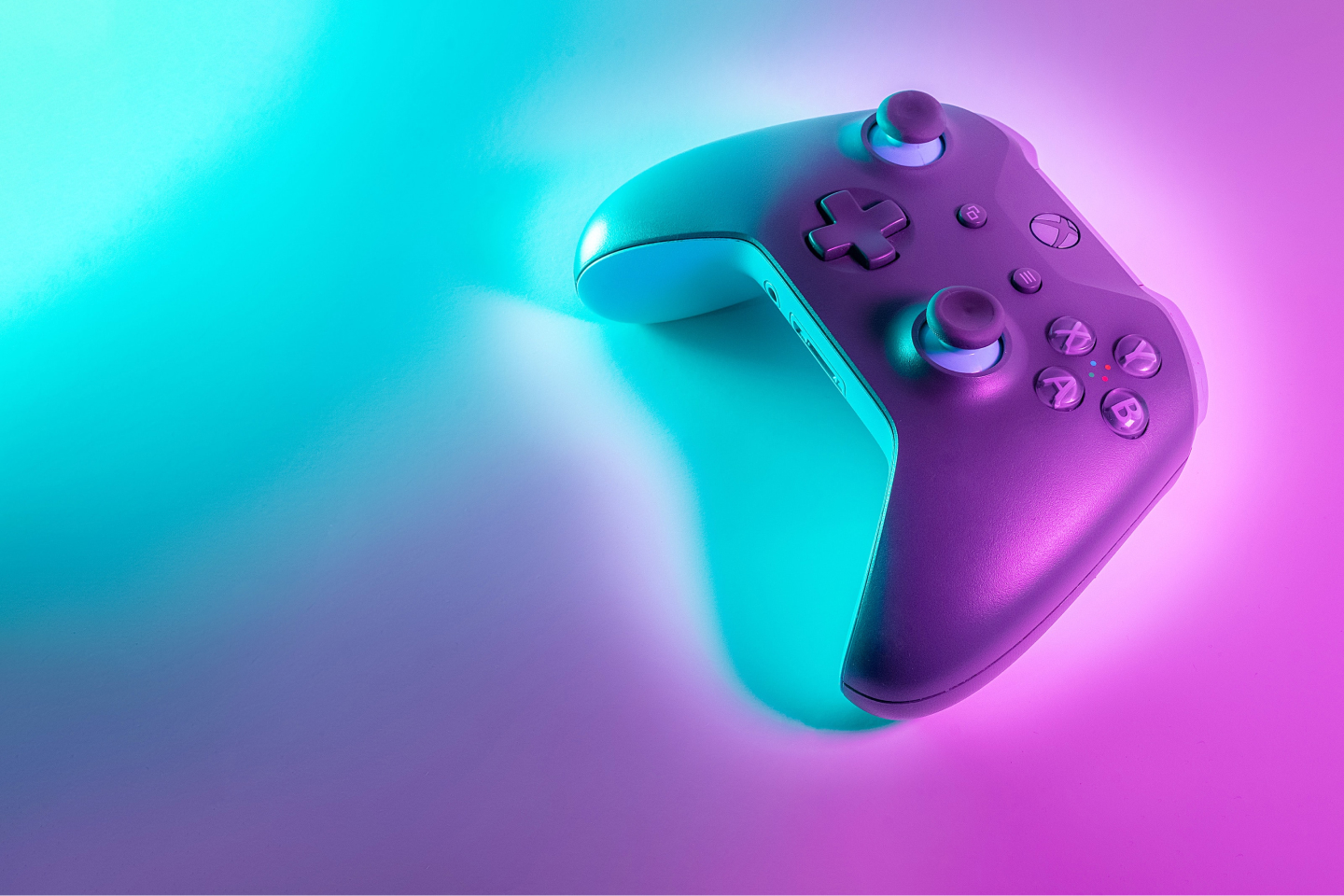The gaming industry is a sizeable component of the global digital content market and is also one of the leading industries where blockchain technology is being rapidly integrated. A report titled ‘A Brief Overview: Blockchain Technology in Gaming’[1] (“Report”) was released recently by online gaming platform Tradisys, in collaboration with crypto platform ‘Waves’. This report lists the possible uses and benefits of using blockchain technology in online gaming. This blogpost aims to summarize some of the key observations of the report.
Trends and advantages of incorporating blockchain technology in online gaming
The gaming industry has grown exponentially over the last few years, with data showing approximately 2.2 billion gamers playing computer games daily.[2] A Newzoo report stated that the online gaming industry generated around USD 134.9 billion in global gaming revenues in 2018.[3] The Report states that traditional borders between gaming, media, sports, and communications are quickly disappearing, creating avenues for new kinds of business collaborations and informing unprecedented social phenomena. For instance, the Report states that between 2003 and 2006, people quit their jobs and devoted all their time to playing the online game Second Life, claiming that their in-game skill should be considered work experience worthy of being listed on their curriculum vitae[4].
According to the ‘Blockchain Technology in Gaming’ report, a key market trend in the gaming sector is the introduction of new technologies like artificial intelligence, virtual reality and blockchain into the sector.[5] At present, blockchain gaming is a small but a rapidly evolving segment of the gaming industry, due to its capability to make the industry more transparent, interactive and secure. HunterCoin, introduced in 2014, was a decentralized and autonomous blockchain game that quickly became popular owing to these features.[6] Game developers have begun using existing platforms like EOS, TRON, and Ethereum to build crypto games. Building games on these platforms allows developers to leverage the popularity and vast network opportunities of such platforms.[7] Another major step taken by the industry was to form ‘The Blockchain Gaming Alliance’ in 2018 in order to promote the use of blockchain in online gaming. One of its main goals was to construct an open space for collaboration in blockchain gaming.[8]
In terms of the economics of using blockchain technology in online gaming, the Report states that this synergy is most valuable for games which offer real monetary value. Tokens issued on blockchain technology may replace in-game tokens (such as coins or gold) to embody this monetary value. For instance, individuals may play poker online and win virtual currency. However, they cannot use this virtual currency anywhere except within the game. This limitation may be removed by incorporating blockchain-based tokens into such online games. People may thus be able to earn tokens through their performance in the game, and to trade these tokens on digital platforms for value.[9] Further, blockchain technology allows game developers to develop exclusive and unique artefacts for their games which are non-fungible and may appreciate in value over time. Additionally, blockchain technology allows for the development of characters which resemble gamers, to provide for a more individualized experience, which is not possible in classic online games. These characters are hard to counterfeit and may even be moved across games.[10]
In the recent past, gamers have begun using tokens to secure in-game assets as well. The blockchain keeps an immutable record of the value of these assets, which is visible to both the owner of the asset and to other gamers. Accordingly, gamers can prove ownership and can trade and exchange their in-game assets for value.[11] Since ownership over these assets is secure, they have begun to be considered to have real value.[12] This has prompted many gamers to invest in such assets. A worldwide survey conducted on a sample size of 513 gamers revealed that 44% of the surveyed gamers have either traded or purchased in-game items on the blockchain in the year 2018.[13] In this regard, the Report cites the example of crypto collectible games where players collect, buy and sell tokens that are characterised by unique and irreplaceable characteristics and visual features (examples include characters, animals, stamps, cards, countries, amongst other things).[14] The value of these tokens is dependent upon their rarity, powers of the character, and other relevant factors.[15] One prominent example of a crypto collectible game is Crypto Kitties. In 2018, a crypto kitty related art form sold for USD 140,000[16] highlighting the appeal of and the market for crypto collectibles. Crypto collectible games also benefit from disintermediation (because intermediaries are no longer required in the transaction) due to which, easy and direct transfer of assets between users becomes possible.[17]
Advantages of building games’ marketplaces on blockchain
The Report defines gaming marketplaces as online spaces that are accessible from any device and may be used to buy, sell or simply access gaming content or games per se.[18] Gaming marketplaces are categorized into four different types: a) a centralized digital distribution platform (similar to an app store) where only platform creators can sell games and in-game content to end consumers; b) platforms where players themselves trade game artefacts, game access keys and in-game currency to earn money; c) mixed marketplaces that enable end users and platform creators to sell/resell games, and d) platforms providing a whole ecosystem for the entire gaming community.[19] Most gaming marketplaces like Steam, Origin, Uplay are centralized platforms and may have features which are detrimental to consumers and game developers alike. Some negative features of centralized gaming platforms are: absolute monopoly over the operating system, excessive barriers to entry into games’ marketplace, and great difficulty for new marketplaces to enter the ecosystem.[20] In some platforms, a commission of approximately 30% of the developer’s profit also goes to the platform.[21]
The Report states that Blockchain technology has the capacity to revolutionize gaming marketplaces by addressing the drawbacks of centralized gaming marketplaces.[22] For instance, Blockchain technology, being decentralized incentivises small game developers to create games, thereby breaking down oligopolistic powers of large studios.[23] This makes the gaming marketplace more diverse and inclusive. Integrating online gaming and blockchain technology also allows gamers to securely resell their digital games on these platforms, as Blockchain technology tracks each digital sale and prevents a game from being duplicated.[24] This ensures that whenever a gamer resells their game, it is an authentic copy and not a duplicate. Moreover, testing games, promoting games, and even earning money from games are new possibilities for gamers, now that gaming marketplaces are being integrated with Blockchain technology.[25]
Some examples of decentralized gaming marketplaces are: Dmarket wherein gamers can use smart contracts and Blockchain to trade virtual assets even for real life objects; Robot Cache wherein players can resell their own copy of game in exchange for cryptocurrency; FLUX wherein all gaming industry stakeholders are brought together to optimize the game development process, and Expload wherein developers can create quick and effective blockchain-based games.[26]
Conclusion
Blockchain has the potential to transform the entire gaming ecosystem by making it more expansive and giving the control back to gamers. Blockchain technology’s inherent features of decentralization and enhanced security are bound to encourage users to trade in in-game digital goods, invest in games and enjoy unique gaming experiences. Blockchain also has the ability to create a more transparent, open-sourced and a fair marketplace ecosystem. This synergy will not only benefit the online gaming ecosystem by opening it to new possibilities but will also enhance the awareness around and credibility of Blockchain technology.
(Co-authored by Gayatri Gupta, a third-year undergraduate student of National Academy of Legal Studies and Research (NALSAR), Hyderabad during her internship with Ikigai Law and Ratul Roshan, Associate at Ikigai Law)
[1]A Brief Overview, Blockchain Technology in Gaming, Tradisys (hereinafter referred to as “Blockchain Technology in Gaming”).
[2]p. 6, Blockchain Technology in Gaming.
[3] p. 6, Blockchain Technology in Gaming.
[4] p. 5, Blockchain Technology in Gaming.
[5] p. 8, Blockchain Technology in Gaming.
[6]p. 9, Blockchain Technology in Gaming.
[7] p. 10, Blockchain Technology in Gaming.
[8] p. 10, Blockchain Technology in Gaming.
[9] p. 11, Blockchain Technology in Gaming.
[10] p. 11, Blockchain Technology in Gaming.
[11] p. 11, Blockchain Technology in Gaming.
[12] p. 12, Blockchain Technology in Gaming.
[13]Christina Gough, Share of gamers who have purchased or traded game items on the blockchain in 2018, Statistic. Available at: https://www.statista.com/statistics/868326/gamers-purchased-traded-game-items-blockchain/.
[14]p. 12, Blockchain Technology in Gaming.
[15] p. 12, Blockchain Technology in Gaming.
[16]Elisa Mala, Who Spends $140,000 on a CryptoKitty? Available at: https://www.nytimes.com/2018/05/18/style/cryptokitty-auction.html.
[17] p. 12, Blockchain Technology in Gaming.
[18]p. 16, Blockchain Technology in Gaming.
[19]p. 17, Blockchain Technology in Gaming.
[20] p. 16, Blockchain Technology in Gaming.
[21]p. 16, Blockchain Technology in Gaming.
[22] p. 17, Blockchain Technology in Gaming.
[23]p. 17, Blockchain Technology in Gaming.
[24] p. 18, Blockchain Technology in Gaming.
[25] p. 17, Blockchain Technology in Gaming.
[26]p. 18, Blockchain Technology in Gaming.










